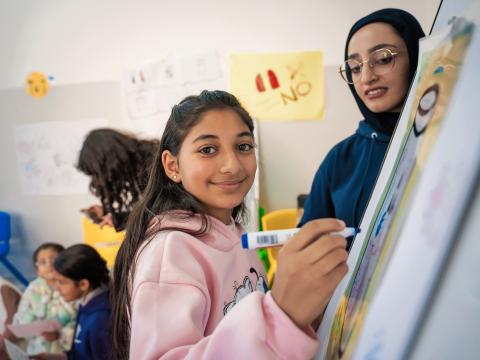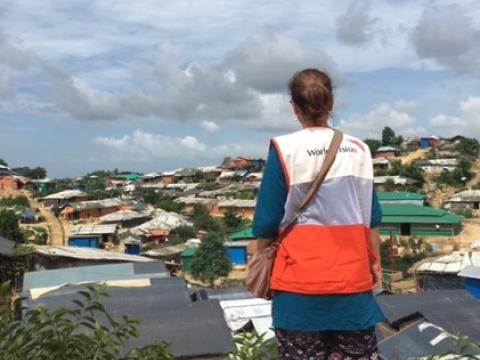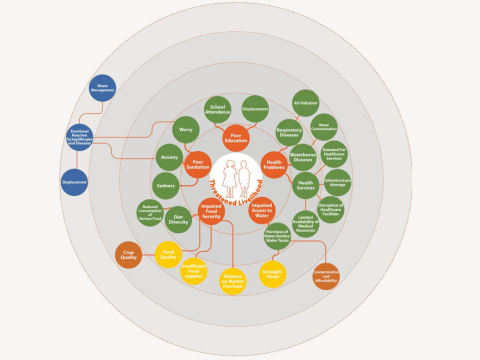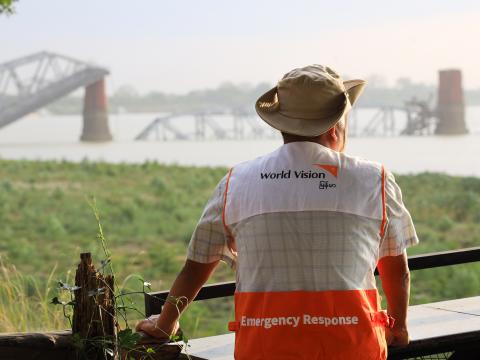
In catastrophes and emergencies, aid workers need mental health support too
On World Mental Health Day, Staff Care Director Kate Roberts urges leaders to see staff care as a cornerstone in every humanitarian response.
09 October 2025
Our frontline staff are often the first to arrive in emergencies and the last to leave. They bring food, water, education, protection, and hope to children and families in their worst moments. But it’s easy to forget that, despite their professionalism, aid workers often face the same kinds of scenes of devastation and environmental threats as the people they are there to help.
Research and experience tell us that in a humanitarian crisis the helpers are also at risk, not just physically. Exposure to trauma, relentless workloads, and constant uncertainty take a toll. If we do not protect the mental health of our staff, we cannot sustain the quality of care we provide to the children we serve. In other words, child well-being is inseparable from staff well-being.
Embedding well-being for all in emergency response
In response to this, we are expanding access to confidential psychosocial support, embedding well-being considerations into emergency deployments, and training leaders to recognise early warning signs of stress and burnout. We are also strengthening policies and practical tools for “duty of care” so that mental health is not an afterthought but a core component of our emergency operations.
This is not just a matter of compassion; it is a matter of effectiveness and ethics. Staff who feel psychologically safe are more able to build trust with communities, make sound decisions under pressure, and model resilience for children. Conversely, when we ignore the mental health needs of our teams, we risk secondary harm - to staff themselves and to the quality of our programmes.
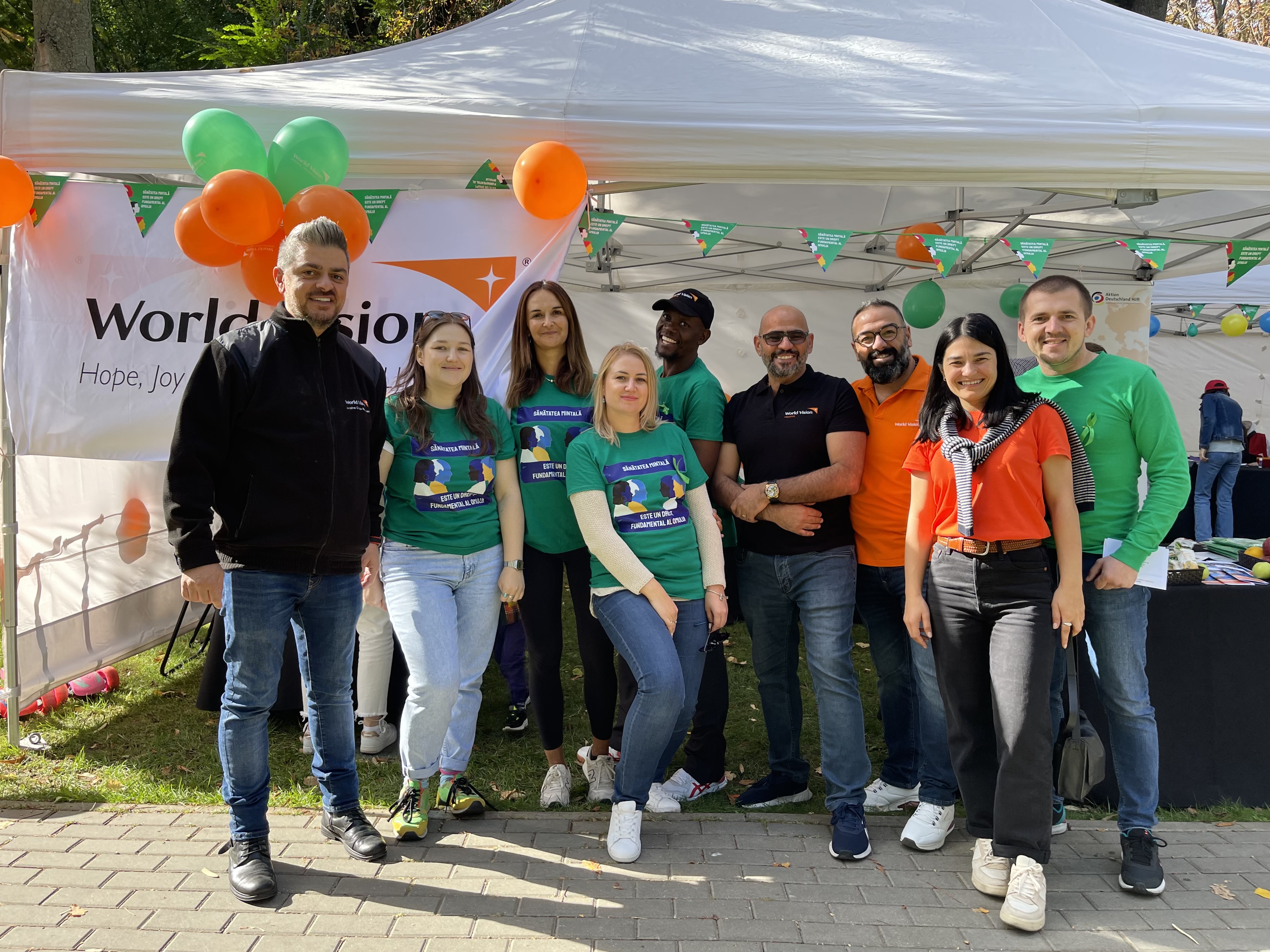
The perfect moment to act for staff mental health
The theme of this year’s World Mental Health Day under is “Access to services – mental health in catastrophes and emergencies. Is there a better moment then for all of us - leaders, colleagues, partners, and donors - to see staff care as a strategic investment rather than a discretionary cost?
As you think about how this year’s theme relates to the work you and your staff do, ask: Do our emergency budgets include dedicated funds for mental health and psychosocial support for staff? Do our managers receive training to lead with empathy? Are we listening when staff tell us they are at their limit?
This year’s theme is also a call to advocacy. Many of the communities we serve have little or no access to mental health services, especially in the aftermath of catastrophe. By caring for our staff, we not only strengthen our response today but also model the kind of integrated, whole-person support that we want for every child and family tomorrow.
Mental health must be a cornerstone of our humanitarian response – for the people we serve and for the people who serve them – so we avoid turning an emergency into a catastrophe for everyone involved.
Learn more about how World Vision is addressing staff and community mental health in emergencies.
Explore our latest updates on psychosocial support for children and caregivers.
Kate Roberts is Director of Staff Care & Well-being at World Vision International, bringing over two decades of humanitarian experience to shaping organisational cultures that prioritise mental health, psychosocial risk management, and psychological safety. She has deep expertise in trauma-informed leadership, organisational change, and building staff care strategies that sustain both people and mission. Join the conversation and connect with her on LinkedIn.
